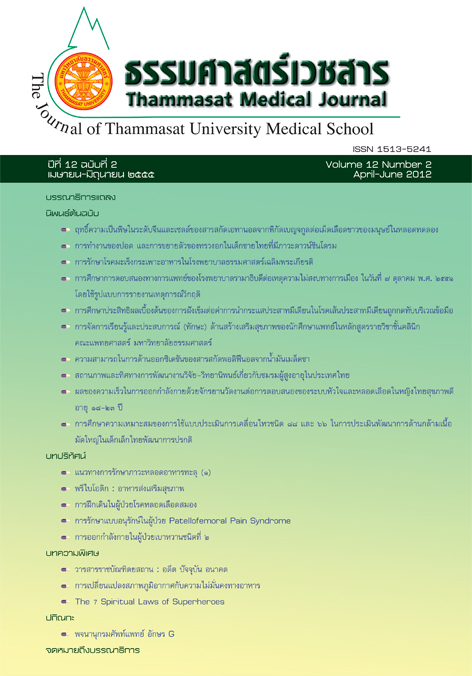Prebiotics: Health-Promoting Food
Keywords:
Prebiotics, Probiotics, Synbiotics, Malto-oligosaccharides, Isomalto-oligosaccharidesAbstract
Prebiotics are functional food that cannot be digested and absorbed in the small intestine, so it passes into the large intestine unchanged. Prebiotics play the role as habitat and promote the specific growth of beneficial microorganisms to health (probiotics) such as lactobacilli and bifidobacteria but decrease the numbers of pathogenic microorganisms. Thus, they have positive effects on the health of consumers such as constipation relief, reduction of gastrointestinal infection, hypersensitivity prevention, reduction of blood cholesterol level, enhancement of calcium absorption and reduction of colon cancer risk. Prebiotics occur naturally in various foods, especially, in fruits, vegetables and some cereals. In commerce, they are synthesized from bacterial enzyme reactions e.g. transglucosidase, amylomaltase and dextransucrase in which give higher yield and could control the length of oligosaccharides. Presently, a mixture of prebiotics and probiotics that is named synbiotics, is receiving much commercial interest and incorporated into many foods such as health beverages, yogurts and infant formulas to improve beneficial bacterial balance in the gastrointestinal tract of host.
Key words: Prebiotics, Probiotics, Synbiotics, Malto-oligosaccharides, Isomalto-oligosaccharides



